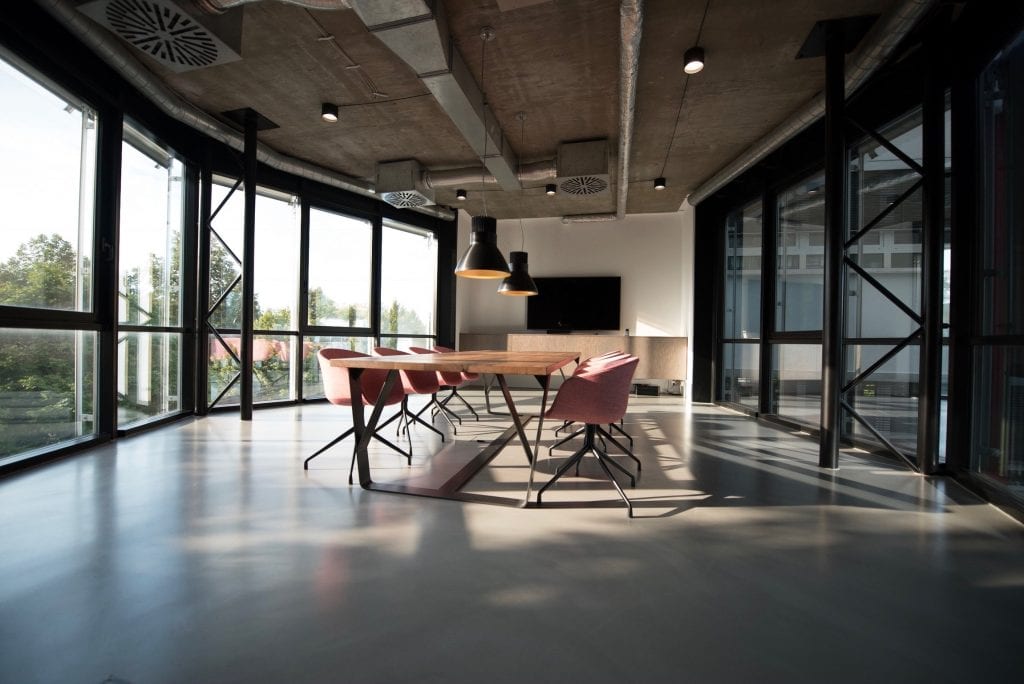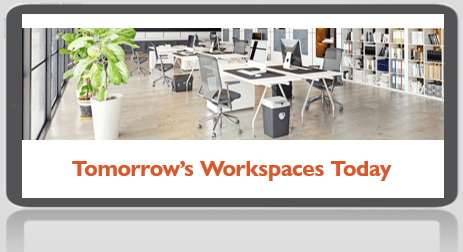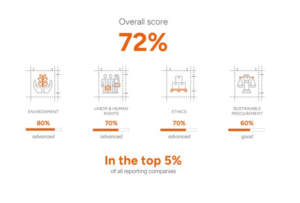Why throwing away office furniture should be a thing of the past
There is really no excuse to throw away old desks, furniture and IT equipment in the race to modernise businesses that are refurbishing or moving offices. Office desks and chairs, for instance, have been a big burden on the environment for many years; often ending up in landfill.
Businesses choose to replace their furniture and IT equipment with bigger, smaller or higher-spec models, even when they are perfectly usable. Now, however, there is another option as new office refit companies begin to offer more sustainable alternatives which fit into a circular economy model.
This phrase describes an alternative model to a linear business world in which goods are made, used and then disposed of.
In a circular economy, the focus is on a more resource-efficient way of doing things, one in which waste is eliminated and resources are used, recovered and then regenerated.
Phil Oram, Regional Director at Crown Workspace, which refurbishes and repurposes office furniture for clients at its innovative Renew Centre in London, believes it’s time to change.
He said: “We can’t continue to throw everything away. We were brought up uneducated about sustainability and it’s our children and social media that are starting to educate us that we must change.
“Remanufacturing office furniture just makes sense, not just ethically but financially, too. There is a 70 per cent cost saving against new. So, it’s not always the expensive option to do the right thing.”
Approximately 1.2 million office desks and 1.8 million office chairs end up in UK landfill each year according to the Waste & Resources Action Programme (WRAP) whose last figures were produced in 2011.
Meanwhile, the Health and Safety Executive (HSE) estimates 2 million tonnes of Waste Electric and Electronic Equipment (WEEE), including IT and telecommunications equipment, are thrown out in the UK annually.
Crown Workspace remanufactured 7750 items of office furniture in 2018-19, which meant 474 tonnes of CO2 saved and 218 tonnes of waste diverted from landfill.
Phil Oram said: “Sustainability is vital for businesses going forward. They want to be seen to doing the right thing – by their customers and by their staff. We cannot continue to operate the way we have for the past 40 years.”
It isn’t only furniture which can be saved, either. Computers, laptops and monitors can all be refurbished or re-sold, while other items can be donated to charities in a bid to prevent them from going to landfill.
Phil added: “Reselling IT can be a good option for many businesses. We had one client who asked us to clear all their IT from three buildings in London. Their bill was around £23,000, but we were able to re-sell most of the items and return an £8,000 cheque to the client.
“There’s certainly a shift in the agenda these days. Businesses that we’re talking to about sustainability are interested in the topic.
“What we are seeing is that it’s not just major corporations that are engaging with us, it’s the start-up businesses who want to know what they can do and how they can benefit society. People are looking for a more sustainable solution.”
Related stories
In this blog, we delve into workplace consultancy, exploring the intricacies of workplace change and space utilisation strategies and their profound implications for businesses.
Sustainability remains a top business priority for Crown in the UK & Ireland and globally; we are therefore delighted to have launched our 2023 UKI Sustainability Report!
Crown are delighted to announce that we have been awarded Gold by EcoVadis in 2024 for the second time, reflecting our commitment to and progress in becoming a responsible business.




















